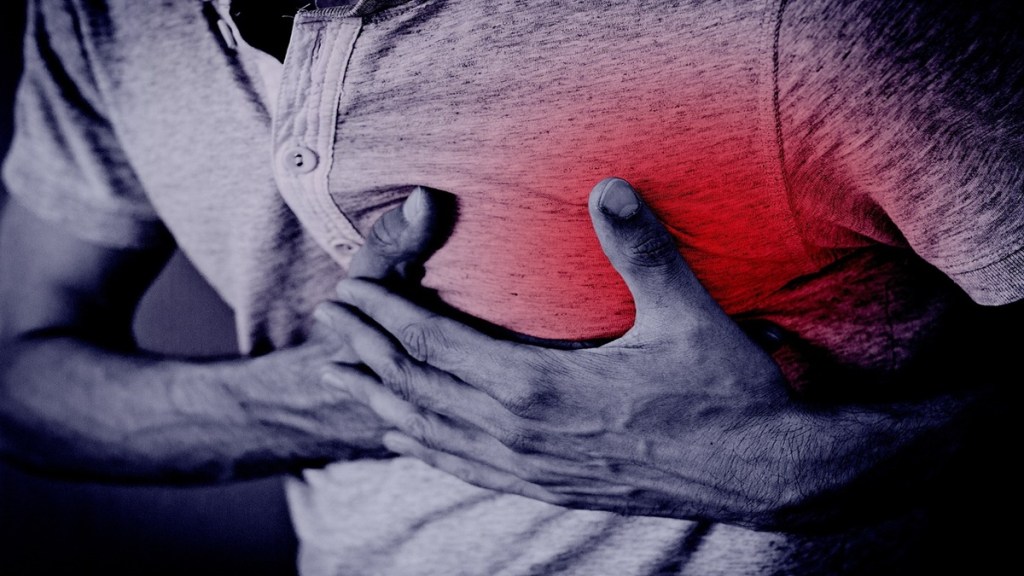Routine heart health checkups: The age of 30 is a decisive historical moment, not only for life, but also for health. As we age, our bodies undergo progressive changes and heart health becomes increasingly important. Many heart diseases develop silently over time, without visible symptoms, until they become serious.
According to Dr Mohit Bhutani, Assistant Professor, Cardiology, Amrita Hospital, Faridabad, regular heart checks can help detect potential problems early, significantly reducing the risk of serious heart disease. After the age of 30, including a few key tests in your regular health checks can help you maintain good heart health for a long time. On the occasion of World Heart Day 2024, Dr. Bhutani highlight the importance of health check-ups for healthy heart.
Here are some tests that you should include in your regular health checks:
- Measure blood pressure: High blood pressure is often called the ‘silent killer’ because it usually has no symptoms, but it can cause serious damage to the heart and blood vessels over time. High blood pressure can lead to heart attacks, strokes and heart failure. At the age of 30, it is essential to regularly check your blood pressure. A normal value is considered to be around 120/80 mm Hg, and any higher value may require lifestyle changes or medical intervention. Regular monitoring allows you to detect any changes as soon as possible before they become dangerous.
- Lipid Profile (Cholesterol Test): The lipid profile is a comprehensive test that measures your cholesterol levels, including LDL (low-density lipoprotein), HDL (high-density lipoprotein), and triglycerides. LDL, often called ‘bad cholesterol’, can lead to the accumulation of plaque in the arteries, increasing the risk of heart disease. HDL, or ‘good cholesterol’, helps remove excess cholesterol from the blood. Triglycerides are another type of fat that, when elevated, can also increase the risk of heart disease. It is recommended to have this test every 4 to 6 years, or more often if you have a family history of heart disease or other risk factors.
- Electrocardiogram (ECG): An electrocardiogram measures the electrical activity of your heart and can detect irregular heartbeats, heart muscle damage, or conditions that can lead to heart disease. Even if you feel healthy, an ECG can reveal the first signs of possible heart problems. This is especially important if you have risk factors such as high blood pressure, high cholesterol or a family history of heart disease.
- Blood Glucose Test: Type 2 diabetes is closely related to heart disease because high blood sugar can damage the blood vessels and nerves that control the heart. A blood sugar test can help detect diabetes or prediabetes. Early diagnosis allows better management through diet, exercise and medication, reducing the risk of cardiac complications later in life.
- Body Mass Index (BMI) and Waist Circumference: Maintaining a healthy weight is essential for heart health. A high BMI or excess belly fat increases the risk of heart disease. Calculating your BMI and measuring your waist circumference are easy ways to assess if you are at risk. A waist measurement greater than 35 inches for women and 40 inches for men is often considered a red flag for an increased risk of heart disease.
- High-Sensitivity C-Reactive Protein (hs-CRP) Test: C-reactive protein (CRP) is a marker of inflammation in the body. Inflammation plays a key role in the development of atherosclerosis, where the arteries are narrowed or blocked, leading to heart attacks or strokes. A high-sensitivity CRP test can help assess the level of inflammation in your body, giving you a clearer picture of your heart disease risk.
- Stress Test: A stress test, often performed on a treadmill, measures how hard your heart works under physical exertion. This test is particularly useful for detecting conditions such as coronary heart disease, where the arteries that supply blood to the heart are narrowed or blocked. It is a valuable tool for people with a family history of heart disease or for people who suffer from chest discomfort or shortness of breath.
Heart health checks after age 30 are an essential part of preventive care. “By doing these key tests regularly, you can better understand your cardiovascular risk and take proactive steps to maintain a healthy heart,” Dr. Bhutani told Financial Express.com.
Regular checkups not only catch problems early, but also encourage healthier lifestyle choices, keeping your heart healthy for years to come, he added.

